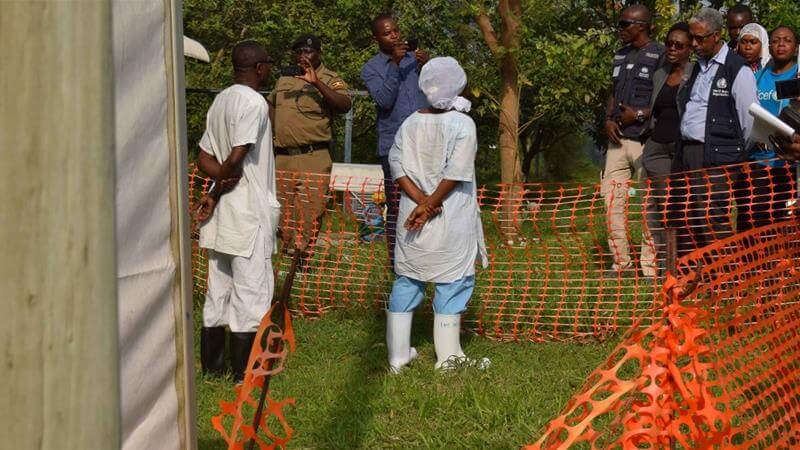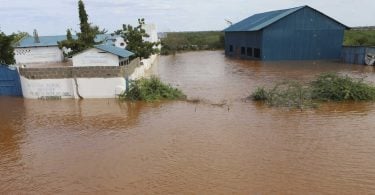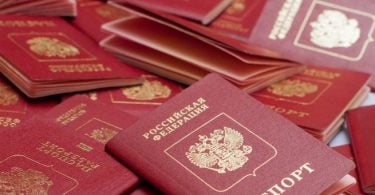
Kenya, Uganda, South Sudan, and the Democratic Republic are on high alert and are dealing with a developing crisis. Uganda is standing as a positive example containing the spread of the deadly Ebola virus on their territories and keeping tourists safe. There are no cases of Ebola yet in Kenya. The Kenya government has given a grant of Sh 350 million ($4 million) towards Kenya’s Ebola Preparedness and Response. Kenya is unaffected by the Ebola outbreak currently but has a potential risk of spread because of its strategic position as an international air and land transportation hub.
Tourism remains safe in Uganda and Kenya, but industry stakeholders and government officials are worried about the PR effects this news has on the global media and the travel and tourism industry. Everyone entering Uganda from South Sudan will be screened for Ebola.
The second sick person just died in Uganda. The East African County has banned public gatherings in the western Kasese district as officials attempt to contain the virus and put great efforts to protect visitors in that region as well. Uganda has vaccinated some 4,700 health workers in more than 150 facilities with an experimental drug designed to protect them against Ebola.
The second victim was a family member of the deceased 5-year-old boy who crossed the border to Uganda with the virus after attending a funeral in the DRC. The third family member is being treated in intensive care.
While the outbreak in the Democratic Republic of Congo continues, the EU has announced further emergency funding of €3.5 million, of which €2.5 million is for Uganda and €1 million for South Sudan. The aid package will strengthen rapid detection and reaction to Ebola cases. Today’s funding comes on top of the €17 million in EU funding for Ebola response since 2018 in the Democratic Republic of Congo and prevention and preparedness actions in Uganda, South Sudan, Rwanda and Burundi.
Christos Stylianides, Commissioner for Humanitarian Aid and Crisis management and EU Ebola coordinator said: “We are doing all we can to save lives and stop further Ebola cases. Today, our main task is not only to help the Democratic Republic of Congo, but also assist neighboring countries like Uganda. Here, our funding is helping with surveillance, work with local communities, and boosting local capacities for these countries to take timely and effective action. We are committed to continuing our assistance to bring this outbreak to an end, for as long as it takes.”
possible to reach millions worldwide
Google News, Bing News, Yahoo News, 200+ publications
In coordination with other international donors and in line with the World Health Organisation’s Regional Strategic Ebola Response and Preparedness Plans, EU funding is contributing towards measures that include mainly:
- the strengthening of disease surveillance at a community level, health facilities and points of entry (border crossing points);
- the training of rapid response teams;
- the training of healthcare and frontline workers on contact-tracing, infection prevention and control measures, psychosocial support, and safe and dignified burials;
- local capacity-building by equipping medical treatment facilities; and
- community awareness-raising.
EU humanitarian health experts in the Democratic Republic of Congo, in Uganda and in the region are coordinating and they are in daily contact with the health authorities in these countries, the World Health Organisation and operational partners.
The EU has been assisting countries on the frontline since the beginning of the outbreak in 2018, providing financial support, experts, the use of the ECHO flight service to deliver supplies and has activated the EU Civil Protection Mechanism.
On 11 June 2019, the Minister of Health of Uganda confirmed that a first patient had tested positive to Ebola virus disease (EVD) in Kasese district, in the south-west of the country.Given the high population mobility in the region between Ebola-affected areas in the Democratic Republic of Congo and neighbouring countries, the threat of a cross-border transmission of the Ebola virus has always been evaluated by the World Health Organisation as very high.
The EU Humanitarian Aid department along with the United Kingdom’s Department for International Development is currently carrying out a field mission in south-west Uganda, with the participation of a regional health expert from the European Commission.
The EU has also financially supported Ebola vaccine development and research on Ebola treatments and diagnostic tests.























